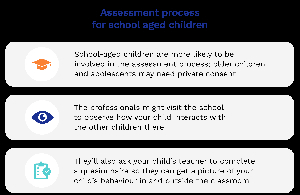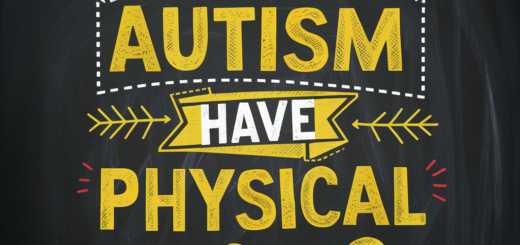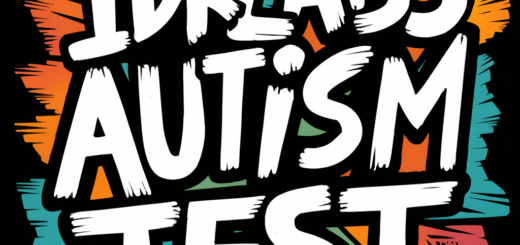Full Guide to Autism Tests in Australia: Available Tests, Where to Get Tested, Procedure Flowchart, FAQs & Resources

TL;DR: Autism Tests in Australia
Key Autism Tests
- ADOS-2: Gold-standard observational assessment (all ages)
- ADI-R: In-depth parent/caregiver interview (all ages)
- ABAS-3: Adaptive skills assessment
- SACS-R: Early childhood screening (best for ages 12–36 months)
- Other: Autism Quotient (AQ), RAADS–R, Aspie Quiz (screening/self-report, not diagnostic)
Where to Get Tested
- Public health services (may have waitlists, often free)
- Private clinics (faster, costs apply, some Medicare rebates)
- Telehealth options available for remote/rural areas
- Start with your GP for referrals
Assessment Procedure Flow
- Notice signs or concerns
- Consult GP or paediatrician
- Referral to public/private assessment service
- Assessment using standard tools (e.g., ADOS-2, ADI-R)
- Receive diagnosis and written report
- Access support (NDIS, therapy, resources)
FAQs (Quick Answers)
Is there a blood test? No, diagnosis is based on behavioral and developmental assessment.
Are telehealth assessments available? Yes, but some parts may require in-person attendance.
Are there costs? Public services are often free; private clinics charge fees (Medicare rebates for under 25s).
Can adults be assessed? Yes, adult assessments are available.
Key Resources
- State Autism Associations (e.g., Autism Spectrum, AMAZE, Autism SA, Autism QLD)
- NDIS (National Disability Insurance Scheme)
- Autism Connect Helpline
- GPs and local health services
Introduction
Navigating autism assessment in Australia can be complex. This guide covers available autism tests, where you can get tested, a step-by-step procedure, FAQs, and a list of resources—optimized for SEO and user experience.
Available Autism Tests in Australia
Formal Diagnostic Tools
- ADOS-2 (Autism Diagnostic Observation Schedule): Gold-standard observational assessment for children and adults35.
- ADI-R (Autism Diagnostic Interview-Revised): Comprehensive parent/caregiver interview about developmental history35.
- ABAS-3 (Adaptive Behavior Assessment System): Measures daily living, communication, and social skills3.
- Cognitive/IQ Assessments: Identify learning strengths and weaknesses (in-person only)5.
Screening and Self-Report Tools
- Autism Quotient (AQ): 50-item questionnaire for self-assessment2.
- RAADS–Revised: 80-statement tool for adults2.
- Aspie Quiz: 119-question self-report2.
- Camouflaging Autistic Traits Questionnaire (CAT-Q): 25 statements2.
- Repetitive Behaviours Questionnaire: 20 statements2.
Where Can You Get Tested?
- Public Services: State-funded assessments (often free but with waiting lists), e.g., Child Development Service (ACT), Western Australia Child and Adolescent Health Service (WA), TADS (Tasmania)17.
- Private Clinics: Faster access, e.g., New Vision Psychology (Sydney), Aspect (nationwide, in-person and telehealth)35.
- Telehealth Assessments: Available for remote/rural areas51.
- Multidisciplinary Teams: Paediatricians, psychologists, speech pathologists, and other allied health professionals18.
Autism Assessment Procedure Flowchart
- Initial Concerns
- Notice signs of autism (social, communication, behavioral differences).
- Consult GP or Paediatrician
- Discuss concerns and get a referral.
- Referral to Assessment Service
- Choose public (longer wait) or private (faster, fee-based).
- Assessment Appointment
- Diagnostic tools used (ADOS-2, ADI-R, ABAS-3, cognitive/IQ tests).
- Multidisciplinary team may be involved.
- Diagnosis and Report
- Receive written report and discuss results.
- Support and Intervention
Resources
- State/Territory Autism Associations:
- Mental Health Support:
- Beyond Blue, SANE Australia, Kids Helpline7
- Government and National Resources:
Conclusion
Understanding the autism testing process in Australia is key to accessing timely support. Use this guide to find the right pathway, tools, and resources for you or your loved one. For the latest information, contact your local autism association or GP17.
Citations:
- https://www.autismawareness.com.au/navigating-autism/getting-a-diagnosis-for-an-autistic-child
- https://embrace-autism.com/autism-tests/
- https://newvisionpsychology.com.au/autism-assessment-sydney/
- https://www.autismcrc.com.au/sites/default/files/inline-files/Australian%20National%20Guideline%20for%20ASD%20Assessment%20-%20Draft%20Version%20for%20Community%20Consultation_0.pdf
- https://www.aspect.org.au/our-services/autism-assessment-diagnosis/assessments-faqs
- https://www.officeforautism.sa.gov.au/autism/pathways-for-diagnosis
- https://thespectrum.org.au/resources/
- https://www.betterhealth.vic.gov.au/health/servicesandsupport/autism-spectrum-disorder-support-services
- https://thespectrum.org.au/autism-diagnosis/adults/
- https://www.aspect.org.au/our-services/autism-assessment-diagnosis/assessment-types
- https://newvisionpsychology.com.au/autism-assessment-sydney/things-you-should-know-about-testing/
- https://www.autismcrc.com.au/best-practice/assessment-and-diagnosis
- https://www.autismcrc.com.au/best-practice/assessment-and-diagnosis/eLearning-resources
- https://raisingchildren.net.au/autism/learning-about-autism/assessment-diagnosis/autism-diagnosis
- https://autismsa.org.au/autism-diagnosis/autism-diagnosis-process/the-diagnostic-process/
- https://www.aspect.org.au/our-services/autism-assessment-diagnosis
- https://www.autismawareness.com.au/navigating-autism/getting-a-diagnosis-for-an-autistic-adult
- https://psychology.mthc.com.au/payments-fees/
- https://theemotionsclinic.com.au/autism-assessment/
- https://alisthub.com.au/resource/where-to-get-an-autism-assessment/
- https://e-doctor.au/autism-test/
- https://www.aspect.org.au/our-services/autism-assessment-diagnosis/getting-a-diagnosis
- https://www.rch.org.au/autism/autism_assessment/Autism_assessment_ages_0-6/
- https://www.autismawareness.com.au/autism/getting-a-diagnosis-of-autism
- https://thespectrum.org.au/faq/
- https://reframingautism.org.au/service/i-am-newly-diagnosed/
- https://reframingautism.org.au/resources/
- http://psychology.mthc.com.au/payments-fees/
- https://www1.racgp.org.au/newsgp/clinical/australia-develops-world-s-most-effective-autism-s
- https://www.autismcrc.com.au/best-practice/assessment-and-diagnosis/for-adults
What are the most reliable autism tests available in Australia for children and adults




The most reliable autism tests available in Australia for both children and adults are those recommended by national guidelines and used by leading assessment services. The following tools are considered gold standard and widely accepted:
- ADOS-2 (Autism Diagnostic Observation Schedule, Second Edition): A structured observational assessment for diagnosing autism across ages and ability levels. It is highly regarded for its reliability and validity9.
- ADI-R (Autism Diagnostic Interview-Revised): A comprehensive, semi-structured interview conducted with parents or caregivers, focusing on developmental history and current behavior. It is commonly used for both children and adults9.
- ABAS-3 (Adaptive Behavior Assessment System, Third Edition): Assesses adaptive skills in daily living, communication, and socialization. It is often used alongside other diagnostic tools9.
- SACS-R (Social Attention and Communication Surveillance-Revised): A screening tool developed in Australia, proven to be highly effective for early identification in children as young as 12–24 months. When used with the SACS-Preschool check, it identifies 96% of children on the spectrum by age 3.5. While it is primarily a screening tool, it is considered the world’s most effective for early detection and is widely used in community health settings45.
- MIGDAS (Monteiro Interview Guidelines for Diagnosing the Autism Spectrum): Another observational tool sometimes used by clinicians, though less common than ADOS-29.
For adults, standardized diagnostic interviews and observational assessments (like ADOS-2 and ADI-R, adapted for adult populations) are used, along with self-report questionnaires such as the RAADS–Revised and Autism Quotient (AQ), though these are not diagnostic on their own.
Summary Table
| Tool | Age Group | Type | Reliability/Evidence Base |
|---|---|---|---|
| ADOS-2 | All ages | Diagnostic | Gold standard |
| ADI-R | All ages | Diagnostic | Gold standard |
| ABAS-3 | All ages | Supportive | High |
| SACS-R | Young children | Screening | World-leading (early ID) |
| MIGDAS | All ages | Diagnostic | Used by some clinics |
Note: For a formal diagnosis, multidisciplinary assessment and the use of gold-standard tools like ADOS-2 and ADI-R are recommended, especially for complex cases67. Screening tools like SACS-R are valuable for early detection but do not replace a full diagnostic assessment.
Citations:
- https://psychology.mthc.com.au/payments-fees/
- https://www.aspect.org.au/our-services/autism-assessment-diagnosis
- https://autismsa.org.au/autism-diagnosis/autism-diagnosis-process/the-diagnostic-process/
- https://www1.racgp.org.au/newsgp/clinical/australia-develops-world-s-most-effective-autism-s
- https://www.autismcrc.com.au/news/latest-news/autism-screening-tool-worlds-most-effective
- https://www.autismcrc.com.au/best-practice/assessment-and-diagnosis
- https://www.autismawareness.com.au/navigating-autism/getting-a-diagnosis-for-an-autistic-child
- https://www.aspect.org.au/our-services/autism-assessment-diagnosis/assessment-types
- https://newvisionpsychology.com.au/autism-assessment-sydney/
FAQs About Autism Tests in Australia
Who can diagnose autism in Australia?
Source: Autism Awareness Australia, Office for Autism SA
What is the difference between an autism test and an autism assessment?
Source: Aspect
What happens during an autism assessment for a child?
Source: Autism SA
How is autism assessed in adults?
Source: Autism SA
What is a cognitive (IQ) assessment and is it part of autism testing?
Source: Aspect
Are telehealth autism assessments available in Australia?
Source: Aspect, Autism Awareness Australia
What if English is not my first language?
Source: Aspect
Can non-speaking, hearing, or vision-impaired individuals be assessed for autism?
Source: Aspect
Does Australia diagnose Pathological Demand Avoidance (PDA)?
Source: Aspect
How long does an autism assessment take?
Source: Autism SA
Is there a cost for autism assessments in Australia?
Source: Autism Awareness Australia
What are the diagnostic criteria for autism in Australia?
Source: Autism SA
Where can I get an autism assessment in Australia?
Source: Autism Awareness Australia, Autism SA
Discover more from Living with Autism
Subscribe to get the latest posts sent to your email.


